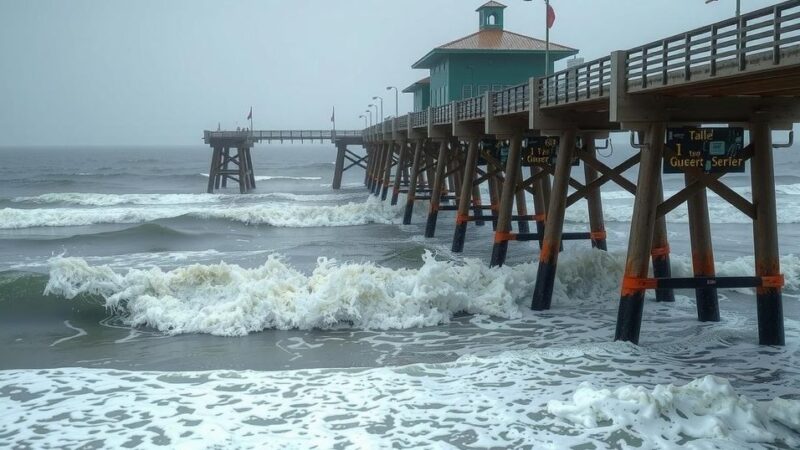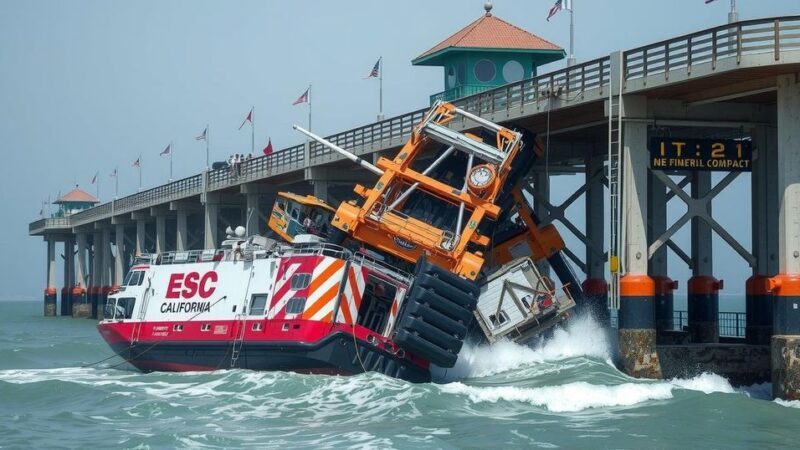Cuba is rapidly restoring power in Havana and surrounding provinces after Tropical Storm Oscar caused significant disruptions and left six dead due to flash flooding in San Antonio del Sur. While 70% of the nation had electricity restored by Tuesday, areas remain cut off due to adverse weather conditions. The storm underlined the vulnerabilities in Cuba’s aging power grid and the challenges posed by diminishing oil imports for energy production.
Cuba has made significant strides in restoring electricity in various regions of the island, particularly in Havana and other provinces, while emergency responders and utility workers are continuing to navigate the aftermath of Tropical Storm Oscar. Initially making landfall near Baracoa as a Category 1 hurricane, Oscar was later downgraded to a tropical storm. Nevertheless, it caused extensive damage across eastern Cuba, including downed powerlines, mudslides, and flooding. Tragically, a severe flash flood nearly obliterated the small town of San Antonio del Sur, resulting in the deaths of six individuals, among whom was a young child. Many areas experienced rainfall exceeding ten inches (25 cm), leading to the inundation of croplands and impacting key agricultural products such as bananas and coffee. Several regions, particularly in Guantanamo, remain isolated due to swollen rivers and obstructed roads, further complicating power restoration efforts. Cuban authorities reported that by mid-afternoon on Tuesday, they had successfully stabilized the electrical grid after experiencing multiple failures since the storm’s arrival. The national blackout, which affected ten million residents, began on Friday, prior to Oscar’s landfall. By Tuesday, approximately 70% of Cuba had regained power, with projections indicating that a number of power plants would come online soon to enhance that percentage. In the capital, Havana, around 90% of the grid’s clients, largely unaffected by the storm, had their electricity restored by midday. Cuba’s oil-fired power plants, which are aging and challenged to maintain service amid dwindling oil imports from Venezuela, Russia, and Mexico, faced a critical situation leading up to last week’s grid failure, further exacerbating the crisis.
The recent impact of Tropical Storm Oscar in Cuba highlights the vulnerabilities in the nation’s electrical grid and its ability to withstand severe weather. Cuba has historically faced issues with its energy infrastructure, primarily reliant on oil-powered plants that are aging and increasingly ineffective. The nation had already been struggling with energy shortages prior to this storm due to decreasing oil import levels. The consequences of such storms amplify the challenges faced in maintaining and restoring electricity, particularly given Cuba’s geographic susceptibility to tropical storms and hurricanes.
In summary, while Cuba has made commendable progress in restoring power following the devastating effects of Tropical Storm Oscar, challenges remain, particularly in isolated regions affected by flooding and mudslides. The nation continues to grapple with the issues inherent in its aging energy infrastructure, which has now faced multiple challenges due to natural disasters. Ongoing efforts to stabilize the electrical grid and increase power generation capacity will be pivotal in enhancing resilience against future storms.
Original Source: www.westhawaiitoday.com







